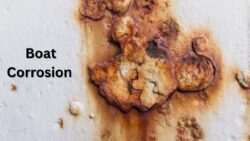Jet ski engine problems can quickly turn an exciting day on the water into a frustrating one. Like any marine vehicle, jet skis (or PWCs – personal watercraft) require regular care and maintenance to stay in peak condition. Whether your jet ski won’t start, loses power, or makes unusual noises, identifying the issue early is key. Here are five effective jet ski repair solutions to help you fix common engine problems and get back on the waves.

1. Check the Fuel System
One of the most frequent causes of jet ski engine trouble is bad or old fuel. Stale gasoline can lead to poor combustion and starting issues. Always use fresh fuel and consider adding a jet ski fuel stabilizer such as STA-BIL® Marine Fuel Stabilizer to keep your fuel system clean and moisture-free—especially during storage periods.
2. Inspect Spark Plugs and Ignition
Dirty or worn-out spark plugs can cause misfires or difficulty starting your jet ski. Remove and inspect the plugs regularly, cleaning or replacing them as needed. Also, check ignition connections for corrosion or loose wiring, particularly if your jet ski has been exposed to saltwater.
3. Clean the Carburetor or Fuel Injectors
Blocked carburetors or fuel injectors can prevent proper fuel flow, leading to rough idling or stalling. If your jet ski engine runs unevenly or loses power, cleaning these components may solve the issue. For older models, a professional carburetor cleaning service can restore fuel efficiency and performance.
4. Monitor Cooling System Performance
Overheating is a major cause of jet ski engine damage. Ensure the cooling system is free from blockages—sand, seaweed, or debris can easily clog intake lines. Flush your cooling system with fresh water after every ride to prevent salt buildup and corrosion inside the engine.
 Diesel Fuel Additive Guide
Diesel Fuel Additive Guide
5. Prevent Corrosion and Moisture Damage
Marine engines are constantly exposed to moisture, which can cause rust, corrosion, and electrical issues. After each use, rinse your jet ski thoroughly and use a protective spray on metal parts. For added protection, treat your fuel with a marine fuel stabilizer to remove water and prevent internal corrosion.
With these jet ski repair solutions and preventive steps, you can avoid major engine problems and extend the life of your watercraft. Regular maintenance and reliable fuel treatment—like STA-BIL® Marine—keep your jet ski performing smoothly all season long.



